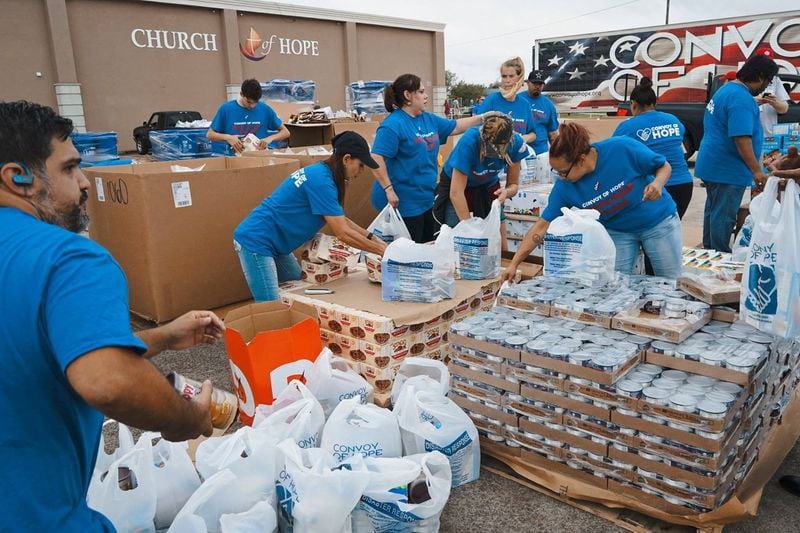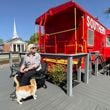On Wednesday morning Steve Stirling was focused on ways his Brunswick-based nonprofit could get more supplies to help Hurricane Harvey victims in Texas and Louisiana.
Before the morning was over, however, Stirling wondered whether MAP International would need help as well.
MAP finds itself in an unusual position.
The Christian-based organization which provides medicines and supplies to those in need around the world, is in the projected path of Hurricane Irma, a powerful storm that has roared through the Caribbean and is projected to hit the United States. Two more storms are building in the Atlantic as well.
“We had to evacuate when Hurricane Matthew came through,” said Stirling, CEO and president of MAP. “Power was off for two or three days. We’re just watching the news. We don’t want to put any staff or volunteers in danger.”
Like MAP, other nonprofits are juggling the challenge of helping people in Texas and Louisiana, while at the same time preparing to help people in the Caribbean and Florida and coastal Georgia and South Carolina.
They must do this as well as continue their originial missions to aid other people in need.
If there is a perfect storm for the relief community, this could be it.
Dozens of volunteers show up at MAP every day to pack health kits - containing toothpaste and brushes, shampoo, soap and Band Aids- for Houston hurricane victims. Now, they’re facing having to evacuate or take steps to protect their own families and possessions.
“We’re doing this on faith,” said Stirling. “It will be heartbreaking if we have to leave because then we can’t help people.”
Stirling said the organization is already working with partners on the ground in Florida to get supplies in place. He said the website will still be operational, which will allow donations to come in to buy supplies.
Related:
The American Red Cross responds to 64,000 disasters every year- large and small.
So, while in the midst of helping people who lost everything in flooding in Texas, “we still have to help people affected by the regular house fire,” said Divina Mims Puckett, regional communications manager for the American Red Cross of Georgia.
She said Red Cross volunteers and relief supplies are being mobilized, and dozens of facilities have been pre-identified as potential evacuation shelters in case they are needed.
The American Red Cross has several advantages that allows it to respond simultaneously to multiple disasters, she said.
It has a vast network of local chapters and volunteers that allows it to be on the ground quickly. Warehouses are also placed strategically around the country to allows it to get supplies quickly to places where its needed. For instance, those warehouses contains hundreds of thousands of cots and blankets and cleaning and relief supplies.
The Red Cross has also requested 20 emergency response vehicles to be moved to the state of Georgia in preparation for Hurricane Irma.
“It’s amazing to watch us change our focus and be able to pivot,” she said.
Another nonprofit, Habitat for Humanity, which is already working in Texas, is gearing up to help in Florida, South Carolina and Georgia.
Habitat for Humanity, through the Habitat Hammers Back initiative, y is working with its local offices in Irma’s projected path to prepare for the storm and is positioning response equipment.
“Our prayers are with those in the path of Hurricane Irma,” said Habitat for Humanity International CEO Jonathan Reckford. “Just as we are already working to help those hit by Hurricane Harvey, we will be ready to respond to Irma.”
Working through its local offices as well as deploying trained Disaster Corps volunteers, Habitat conducts rapid assessments of storm damage and helps clean out homes damaged by winds and flood waters.
Construction plans will be determined after evaluations and will depend on the level of support received from donors, volunteers, corporate partners and other community organizations.
About the Author







